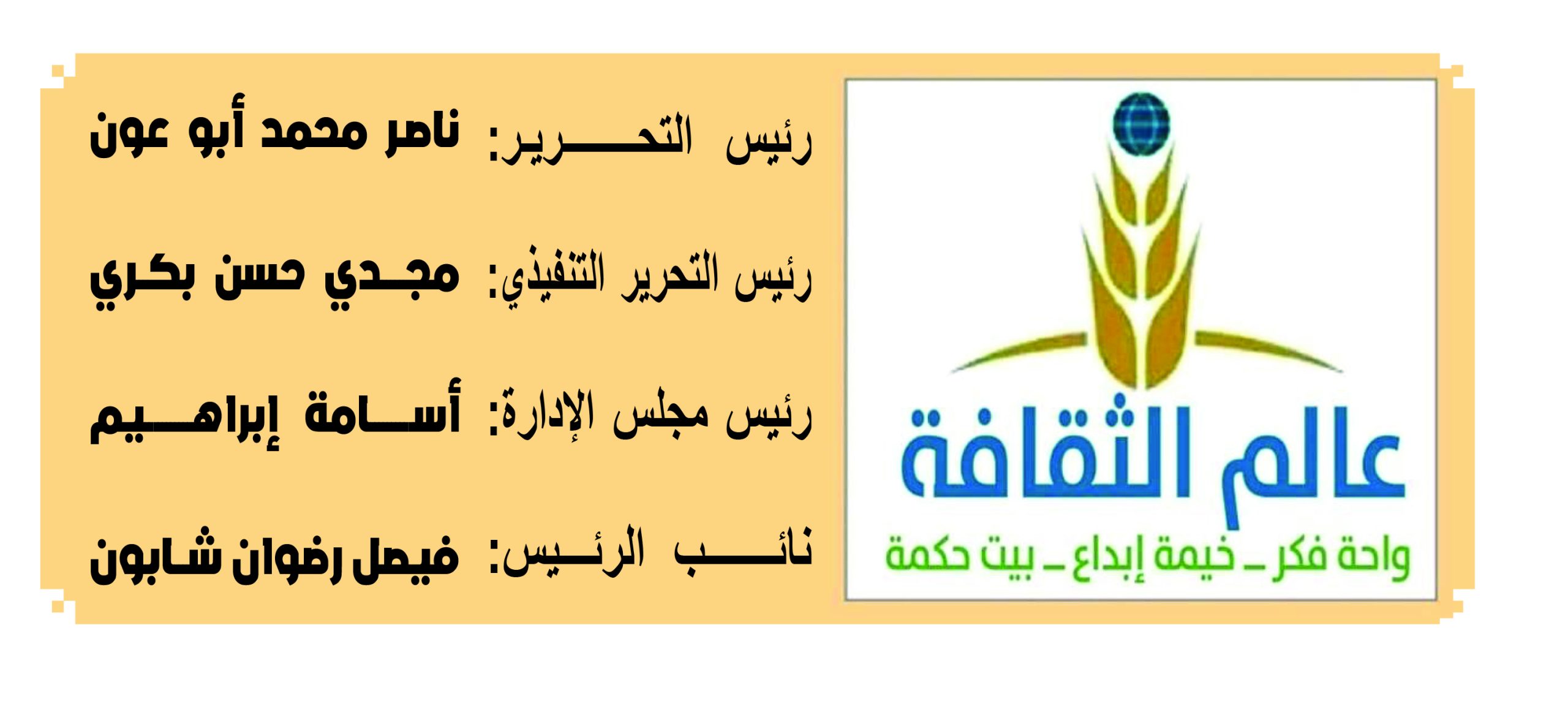من إشكاليات الترجمة الدينية.. ترجمة الأعداد في القرآن(23)

أ.د. عنتر صلحي | أستاذ الترجمة واللغويات – جامعة جنوب الوادي –
ربما يظن بعض الناس أن الأعداد numbers من أيسر الأشياء التي يمكن ترجمتها؛ فلا يختلف اثنان على أن ترجمة العشرين twenty أو الخمسين fifty. غير أن التعبيرات العربية القديمة في ذكر الأعداد قد لا تكون بهذا الوضوح في أذهان مترجمي العصر الحديث، لتغير دلالة بعض ألفاظ الأعداد بين اللغتين أو عبر الزمن قديما وحديثا. وربما كان الخطأ مرده سوء الفهم لطبيعة تراكيب الأعداد في اللغتين. وسنعطي هنا مثالين لإشكاليات ترجمة الأعداد في النص القرآني.
المثال الأول: من سورة فصلت:
۞ قُلْ أَئِنَّكُمْ لَتَكْفُرُونَ بِالَّذِي خَلَقَ الْأَرْضَ فِي يَوْمَيْنِ وَتَجْعَلُونَ لَهُ أَندَادًا ۚ ذَٰلِكَ رَبُّ الْعَالَمِينَ (9) وَجَعَلَ فِيهَا رَوَاسِيَ مِن فَوْقِهَا وَبَارَكَ فِيهَا وَقَدَّرَ فِيهَا أَقْوَاتَهَا فِي أَرْبَعَةِ أَيَّامٍ سَوَاءً لِّلسَّائِلِينَ (10) ثُمَّ اسْتَوَىٰ إِلَى السَّمَاءِ وَهِيَ دُخَانٌ فَقَالَ لَهَا وَلِلْأَرْضِ ائْتِيَا طَوْعًا أَوْ كَرْهًا قَالَتَا أَتَيْنَا طَائِعِينَ (11) فَقَضَاهُنَّ سَبْعَ سَمَاوَاتٍ فِي يَوْمَيْنِ وَأَوْحَىٰ فِي كُلِّ سَمَاءٍ أَمْرَهَا ۚ وَزَيَّنَّا السَّمَاءَ الدُّنْيَا بِمَصَابِيحَ وَحِفْظًا ۚ ذَٰلِكَ تَقْدِيرُ الْعَزِيزِ الْعَلِيمِ.
فهذه الآيات تتحدث عن خلق السموات والأرض التفصيلي. في الآية التاسعة يذكر النص يومين لخلق الأرض، وفي الآية العاشرة يذكر أربعة أيام للرواسي والأقوات، وفي الآية الثانية عشرة، يذكر يومين لخلق السموات السبع. والمشكلة هنا هي في عملية الحساب؛ فالحساب الظاهري يقول إن 2+4+2 = 8 في حين من المعروف أن خلق السموات والأرض تم في ستة أيام، كما ينص القرآن في موضع آخر. الَّذِي خَلَقَ السَّمَوَاتِ وَالأَرْضَ وَمَا بَيْنَهُمَا فِي سِتَّةِ أَيَّامٍ ثُمَّ اسْتَوَى عَلَى الْعَرْشِ الرَّحْمَنُ فَاسْأَلْ بِهِ خَبِيرًا [الفرقان:59].
وفي الحقيقة فإن الحساب هنا بهذه الطريقة خطأ، لأن النص يقول في الآية العاشرة بعد ذكر الأربعة الأيام [سواء للسائلين] ولهذه معنى أساسي في عملية الحساب.
فالحساب الصواب هو: يومان لخلق الأرض ثم يومان للرواسي والأقوات، فيكون مجموعهما أربعة أيام ثم يومان في للسموات فيكون المجموع الإجمالي ستة أيام. ومثل هذا في كلام العرب كثير؛ تقول:” أذهب من البصرة إلى بغداد في يومين وإلى دمشق في ثلاثة أيام”. فالمعنى ليس أن الثلاثة أيام إلى دمشق تضاف إلى اليومين لبغداد؛ بل إن يومي بغداد داخلة في حساب الأيام إلى دمشق. بمعنى آخر “أذهب إلى بغداد في يومين، فإن أردت الذهاب لدمشق فأزيد يوما آخر، فيكون ذهابي إلى دمشق في ثلاثة أيام”.
وكلمة [سواء] تعني متساوية، أي الأيام، وتعني كذلك مكتملة تمام الاكتمال.
وكما ترى فالخلل هنا سببه عدم فهم طبيعة الجمع الداخل فيما سبق، والجمع المنفصل عما سبق. ومن الضروري عند ترجمة معاني القرآن بيان أن الأربعة الأيام المذكورة تشمل اليومين السابقين، لأن العقل الغربي قد يتجه – وكثيراً يفعل- لحساب الإضافة المنفصلة دون إدراك لطبيعة الحساب في التعبيرات العربية. وإذا ألقينا نظرة على الترجمات المختلفة التالية، نجدها جميعا تترجم [سواء] بـ equal, alike, without distinction, ولا يلتفتون لمعنى تمام الأيام. ورغم أن محسن خان يكثر من التوضيح بين القوسين، فهو لا يذكر ان الأربعة أيام شاملة لليومين السابقين، و كذلك شاكير يتحفظ على لفظ day ويعتبر يوم الخلق غير أيامنا، فيترجمها ب period ولكن لا يبين أن الفترة الرباعية شاملة للفترة الثنائية السابقة عليها. وكان يمكن لأي من المترجمين أن يضيف بعد الأربعة أيام بين قوسين (inclusive of the previous two days).
Sahih International: Say, “Do you indeed disbelieve in He who created the earth in two days and attribute to Him equals? That is the Lord of the worlds.” And He placed on the earth firmly set mountains over its surface, and He blessed it and determined therein its [creatures’] sustenance in four days without distinction – for [the information] of those who ask. Then He directed Himself to the heaven while it was smoke and said to it and to the earth, “Come [into being], willingly or by compulsion.” They said, “We have come willingly.” And He completed them as seven heavens within two days and inspired in each heaven its command. And We adorned the nearest heaven with lamps and as protection. That is the determination of the Exalted in Might, the Knowing.
Pickthall: Say (O Muhammad, unto the idolaters): Disbelieve ye verily in Him Who created the earth in two Days, and ascribe ye unto Him rivals? He (and none else) is the Lord of the Worlds.He placed therein firm hills rising above it, and blessed it and measured therein its sustenance in four Days, alike for (all) who ask; Then turned He to the heaven when it was smoke, and said unto it and unto the earth: Come both of you, willingly or loth. They said: We come, obedient. Then He ordained them seven heavens in two Days and inspired in each heaven its mandate; and We decked the nether heaven with lamps, and rendered it inviolable. That is the measuring of the Mighty, the Knower.
Yusuf Ali: Say: Is it that ye deny Him Who created the earth in two Days? And do ye join equals with Him? He is the Lord of (all) the Worlds. He set on the (earth), mountains standing firm, high above it, and bestowed blessings on the earth, and measure therein all things to give them nourishment in due proportion, in four Days, in accordance with (the needs of) those who seek (Sustenance). Moreover He comprehended in His design the sky, and it had been (as) smoke: He said to it and to the earth: “Come ye together, willingly or unwillingly.” They said: “We do come (together), in willing obedience.” So He completed them as seven firmaments in two Days, and He assigned to each heaven its duty and command. And We adorned the lower heaven with lights, and (provided it) with guard. Such is the Decree of (Him) the Exalted in Might, Full of Knowledge.
Shakir: Say: What! do you indeed disbelieve in Him Who created the earth in two periods, and do you set up equals with Him? That is the Lord of the Worlds. And He made in it mountains above its surface, and He blessed therein and made therein its foods, in four periods: alike for the seekers. Then He directed Himself to the heaven and it is a vapor, so He said to it and to the earth: Come both, willingly or unwillingly. They both said: We come willingly. So He ordained them seven heavens in two periods, and revealed in every heaven its affair; and We adorned the lower heaven with brilliant stars and (made it) to guard; that is the decree of the Mighty, the Knowing.
Muhammad Sarwar: Say, “Do you really disbelieve in the One Who created the earth in two days? Do you consider things equal to Him? He is the Lord of the Universe.In four days He placed the mountains on it, blessed it, and equally measured out sustenance for those who seek sustenance. He established His dominance over the sky, which (for that time) was like smoke. Then He told the heavens and the earth, “Take your shape either willingly or by force” They said, “We willingly obey”. He formed the seven heavens in two days and revealed to each one its task. He decked the sky above the earth with torches and protected it from (intruders).. Such is the design of the Majestic and All-knowing God”.
Mohsin Khan: Say (O Muhammad SAW): “Do you verily disbelieve in Him Who created the earth in two Days and you set up rivals (in worship) with Him? That is the Lord of the ‘Alamin (mankind, jinns and all that exists). He placed therein (i.e. the earth) firm mountains from above it, and He blessed it, and measured therein its sustenance (for its dwellers) in four Days equal (i.e. all these four ‘days’ were equal in the length of time), for all those who ask (about its creation). Then He Istawa (rose over) towards the heaven when it was smoke, and said to it and to the earth: “Come both of you willingly or unwillingly.” They both said: “We come, willingly.” Then He completed and finished from their creation (as) seven heavens in two Days and He made in each heaven its affair. And We adorned the nearest (lowest) heaven with lamps (stars) to be an adornment as well as to guard (from the devils by using them as missiles against the devils). Such is the Decree of Him the All-Mighty, the All-Knower.
Arberry: Say: ‘What, do you disbelieve in Him who created the earth in two days, and do you set up compeers to Him? That is the Lord of all Being. ‘And He set therein firm mountains over it, and He blessed it, and He ordained therein its diverse sustenance in four days, equal to those who ask.’ Then He lifted Himself to heaven when it was smoke, and said to it and to the earth, “Come willingly, or unwillingly!” They said, “We come willingly.” So He determined them as seven heavens in two days, and revealed its commandment in every heaven.’
المثال الثانيعن الأعداد هو ما لفت نظري إليه الأخ الكريم الدكتور محمد فوزي الغازي، في الآية الكريمة:
ثَمَانِيَةَ أَزْوَاجٍ ۖ مِّنَ الضَّأْنِ اثْنَيْنِ وَمِنَ الْمَعْزِ اثْنَيْنِ ۗ قُلْ آلذَّكَرَيْنِ حَرَّمَ أَمِ الْأُنثَيَيْنِ أَمَّا اشْتَمَلَتْ عَلَيْهِ أَرْحَامُ الْأُنثَيَيْنِ ۖ نَبِّئُونِي بِعِلْمٍ إِن كُنتُمْ صَادِقِينَ (143) وَمِنَ الْإِبِلِ اثْنَيْنِ وَمِنَ الْبَقَرِ اثْنَيْنِ ۗ قُلْ آلذَّكَرَيْنِ حَرَّمَ أَمِ الْأُنثَيَيْنِ
فههنا تعبير (ثمانية أزواج) يثير إشكالية في أذهان المعاصرين، الذين تعودوا على اعتبار الزوج يتكون من اثنين مماثلا للكلمة الإنجليزية pair، في حين أن اللغة العربية تطلق (الزوج) على الواحد، وتجعل له مثنى (زوجين). والزوجان (الرجل والمرأة) كل واحد منها [زوج]. والآية هنا تشير إلى ثمانية أفراد من الأنعام (2 من الضأن + 2 من المعز+ 2 من الأبل + 2 من البقر) و ليس إلى ثمانية ثنائيات (ليس 16!!). لذلك فترجمة كلمة أزواج هنا بـ pairs خاطئة لأنها تصرف ذهن القارئ إلى 16 حالة، والمقرر في الآية وما تليها غير ذلك.
وبالنظر إلى الترجمات التالية، نجد معظمها يترجم ثمانية أزواج ب eight pairs، و آربري يترجمها ب eight couples وفي الحالتين ليس هذا هو المقصود. يوسف علي كان مدركا للأمر، فترجمها ب four pairs حتى يكون مجموعها ثمانية أفراد، وليس ستة عشر. و احتاط شاكيرفترجمها eight in pairs أي أن المجموع الإجمالي ثمانية لكنه يشتمل على ثنائيات داخله. والصحيحة الدولية تتجنب لفظ pairs وتترجم الأزواج ب mates وهو احتراز جيد؛ لأن mate في الإنجليزية تشير للفرد – بخلاف pair- وعلى هذا ف eight mates تعني أن المجموع ثمانية مكون من ثنائيات (ذكر وأنثى) مما يذكر من الأنعام في الآيتين.
Sahih International: [They are] eight mates – of the sheep, two and of the goats, two. Say, “Is it the two males He has forbidden or the two females or that which the wombs of the two females contain? Inform me with knowledge, if you should be truthful.” And of the camels, two and of the cattle, two. Say, “Is it the two males He has forbidden or the two females or that which the wombs of the two females contain?
Pickthall: Eight pairs: Of the sheep twain, and of the goats twain. Say: Hath He forbidden the two males or the two females, or that which the wombs of the two females contain? Expound to me (the case) with knowledge, if ye are truthful. And of the camels twain and of the oxen twain. Say: Hath He forbidden the two males or the two females, or that which the wombs of the two females contain
Yusuf Ali: (Take) eight (head of cattle) in (four) pairs: of sheep a pair, and of goats a pair; say, hath He forbidden the two males, or the two females, or (the young) which the wombs of the two females enclose? Tell me with knowledge if ye are truthful: Of camels a pair, and oxen a pair; say, hath He forbidden the two males, or the two females, or (the young) which the wombs of the two females enclose?
Shakir: Eight in pairs– two of sheep and two of goats. Say: Has He forbidden the two males or the two females or that which the wombs of the two females contain? Inform me with knowledge if you are truthful. And two of camels and two of cows. Say: Has He forbidden the two males or the two females or that which the wombs of the two females contain?
Muhammad Sarwar: (Supposing) that there are eight pairs of cattle, two pairs of sheep, and two pairs of goats. Tell Me (which is lawful and which is not)? Are the two males unlawful (to eat) or the two females or those that are in the wombs of the females? If you are truthful, then, answer Me exactly. Of the two pairs of camels and cows, are the males unlawful (to eat) or the females or that which exists in the wombs of the females?
Mohsin Khan: Eight pairs; of the sheep two (male and female), and of the goats two (male and female). Say: “Has He forbidden the two males or the two females, or (the young) which the wombs of the two females enclose? Inform me with knowledge if you are truthful.” And of the camels two (male and female), and of oxen two (male and female). Say: “Has He forbidden the two males or the two females or (the young) which the wombs of the two females enclose?
Arberry: Eight couples: two of sheep, of goats two. Say: ‘Is it the two males He has forbidden or the two females? Or what the wombs of the two females contain? Tell me with knowledge, if you speak truly.’ Of camels two, of oxen two. Say: ‘Is it the two males He has forbidden or the two females?
المثال الثالث
عرض لي قبيل نشر المقال، ويختص بمسائل المواريث. كنت قد حضرت محاضرة للدكتور بشار أبو شعر أستاذ طب الأسنان والخبير بالمعالم النبوية بالمدينة المنورة. وكان موضوع المحاضرة عن موقع ديار بني قينقاع بالمدينة. وذكر الدكتور منازل بني بلحارث الخزرجية المتاخمة لبني قينقاع، وذكر منهم الصحابي الجليل سعد بن الربيع الذي استشهد في غزوة أحد. ثم ذكر أنه فيه وفي بنتيه نزلت أول آية المواريث بسورة النساء (يوصيكم الله في أولادكم …) آية 11.
فلما رجعت لكتب السيرة والحديث، وجدت الحديث كالتالي.
حدثنا عبد بن حميد حدثني زكرياء بن عدي أخبرنا عبيد الله بن عمرو عن عبد الله بن محمد بن عقيل عن جابر بن عبد الله قال جاءت امرأة سعد بن الربيع بابنتيها من سعد إلى رسول الله صلى الله عليه وسلم فقالت يا رسول الله هاتان ابنتا سعد بن الربيع قتل أبوهما معك يوم أحد شهيدا وإن عمهما أخذ مالهما فلم يدع لهما مالا ولا تنكحان إلا ولهما مال قال يقضي الله في ذلك فنزلت آية الميراث فبعث رسول الله صلى الله عليه وسلم إلى عمهما فقال أعط ابنتي سعد الثلثين وأعط أمهما الثمن وما بقي فهو لك. (سنن الترمذي رقم 2092).
فإذا رجعنا إلى نص آية المواريث، وجدناها هكذا:
يُوصِيكُمُ اللَّهُ فِي أَوْلَادِكُمْ ۖ لِلذَّكَرِ مِثْلُ حَظِّ الْأُنْثَيَيْنِ ۚ فَإِنْ كُنَّ نِسَاءً فَوْقَ اثْنَتَيْنِ فَلَهُنَّ ثُلُثَا مَا تَرَكَ ۖ وَإِنْ كَانَتْ وَاحِدَةً فَلَهَا النِّصْفُ ۚوَلِأَبَوَيْهِ لِكُلِّ وَاحِدٍ مِنْهُمَا السُّدُسُ مِمَّا تَرَكَ إِنْ كَانَ لَهُ وَلَدٌ ۚ فَإِنْ لَمْ يَكُنْ لَهُ وَلَدٌ وَوَرِثَهُ أَبَوَاهُ فَلِأُمِّهِ الثُّلُثُ ۚ فَإِنْ كَانَ لَهُ إِخْوَةٌ فَلِأُمِّهِ السُّدُسُ ۚ مِنْ بَعْدِ وَصِيَّةٍ يُوصِي بِهَا أَوْ دَيْنٍ ۗ آبَاؤُكُمْ وَأَبْنَاؤُكُمْ لَا تَدْرُونَ أَيُّهُمْ أَقْرَبُ لَكُمْ نَفْعًا ۚ فَرِيضَةً مِنَ اللَّهِ ۗ إِنَّ اللَّهَ كَانَ عَلِيمًا حَكِيمًا. (النساء: 11).
الإشكالية هنا في (فوق اثنتين)، فالله سبحانه وتعالى لم يقل: فإن كن اثنتين؛ فما معنى (فوق اثنتين)؟
هناك إجابة بسيطة ومباشرة، وهناك إجابة مفصلة. الإجابة البسيطة تقول: أن المعنى (اثنتين فما فوق) two or more والدليل على ذلك:
1- أن النبي قضى بإعطاء ابنتي سعد بن الربيع الثلثين، وهما اثنتان.
2- أن فوق قد تأتي زائدة (مثل فاضربوا فوق الأعناق) أي اضربوا الاعناق.
وأما الإجابة التفصيلية، فعند علماء المواريث، يلحق حكم البنتين بحكم الأختين المنصوص عليه في آية:
يَسْتَفْتُونَكَ قُلِ اللَّهُ يُفْتِيكُمْ فِي الْكَلَالَةِ ۚ إِنِ امْرُؤٌ هَلَكَ لَيْسَ لَهُ وَلَدٌ وَلَهُ أُخْتٌ فَلَهَا نِصْفُ مَا تَرَكَ ۚ وَهُوَ يَرِثُهَا إِنْ لَمْ يَكُنْ لَهَا وَلَدٌ ۚ فَإِنْ كَانَتَا اثْنَتَيْنِ فَلَهُمَا الثُّلُثَانِ مِمَّا تَرَكَ ۚ وَإِنْ كَانُوا إِخْوَةً رِجَالًا وَنِسَاءً فَلِلذَّكَرِ مِثْلُ حَظِّ الْأُنْثَيَيْنِ ۗ يُبَيِّنُ اللَّهُ لَكُمْ أَنْ تَضِلُّوا ۗ وَاللَّهُ بِكُلِّ شَيْءٍ عَلِيمٌ﴿176﴾
وهناك تفاصيل كثيرة في هذا الأمر في علم المواريث. ولكن المقصد هنا أن (فوق اثنتين) هنا لا تعني (أكثر من اثنتين) more than two. إنما تعني اثنتين فما أكثر two or more.
الآن ننظر للمترجمين، لنرى هل تنبهوا لهذا الأمر المهم للغاية أم لا، خاصة وأنه متعلق بأحكام شرعية في الميراث وليس مجرد معنى لغوي.
Sahih International: Allah instructs you concerning your children: for the male, what is equal to the share of two females. But if there are [only] daughters, two or more, for them is two thirds of one’s estate.
Pickthall: Allah chargeth you concerning (the provision for) your children: to the male the equivalent of the portion of two females, and if there be women more than two, then theirs is two-thirds of the inheritance.
Yusuf Ali: Allah (thus) directs you as regards your Children’s (Inheritance): to the male, a portion equal to that of two females: if only daughters, two or more, their share is two-thirds of the inheritance.
Shakir: Allah enjoins you concerning your children: The male shall have the equal of the portion of two females; then if they are more than twofemales, they shall have two-thirds of what the deceased has left.
Muhammad Sarwar: This is a commandment from your Lord: After the payment of debts or anything bequeathed, let the male inherit twice as much as the female. If there are more than two girls, they will have two-thirds of the legacy.
Mohsin Khan: Allah commands you as regards your children’s (inheritance); to the male, a portion equal to that of two females; if (there are) only daughters, two or more, their share is two thirds of the inheritance.
Arberry: God charges you, concerning your children: to the male the like of the portion of two females, and if they be women above two, then for them two-thirds of what he leaves.
وههنا نرى أن من بين سبعة مترجمين، ترجمها أربعة خطاءً ب more than two (ويشترك معهم أربري الذي ترجمها ب above two التي تعطي نفس معني أكثر من اثنتين) و ترجمها ثلاثة بشكل صحيح two or more. والملاحظ أن اللذين أصابوا في الترجمة هم: محسن خان وهي ترجمة مجمع الملك فهد لطباعة المصحف الشريف بالمدينة المنورة لذا فقد تمت مراجعتها شرعيا بشكل كاف. و ترجمة الصحيحة الدولية وهي ترجمة جيدة قامت بها ثلاث نساء أمريكيات لكن تمت أثناء تواجدهن ودراستهن بالمملكة العربية السعودية لذا فقد تمت مراجعة معظم الأحكام الشرعية بها (والسيدات هن أمينة أسامي (أم محمد) (بالإنجليزية: Umm Muhammad, Aminah Assami)، وأمَة الله بانتلي (بالإنجليزية : Amatullah J. Bantley)، وماري كندي (بالإنجليزية: Mary M. Kennedy) )، وترجمة عبد الله يوسف علي الخبير بالقرآن وعلم اللغة، والذي رجع إلى أمهات التفاسير عند الترجمة. في حين يغلب على باقي الترجمات الخاطئة الاجتهاد اعتمادا على ظاهر النص دون الرجوع للأحكام الشرعية.
والله أعلم.




